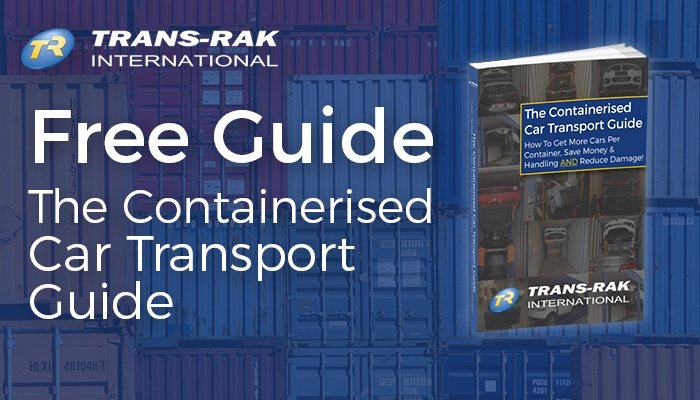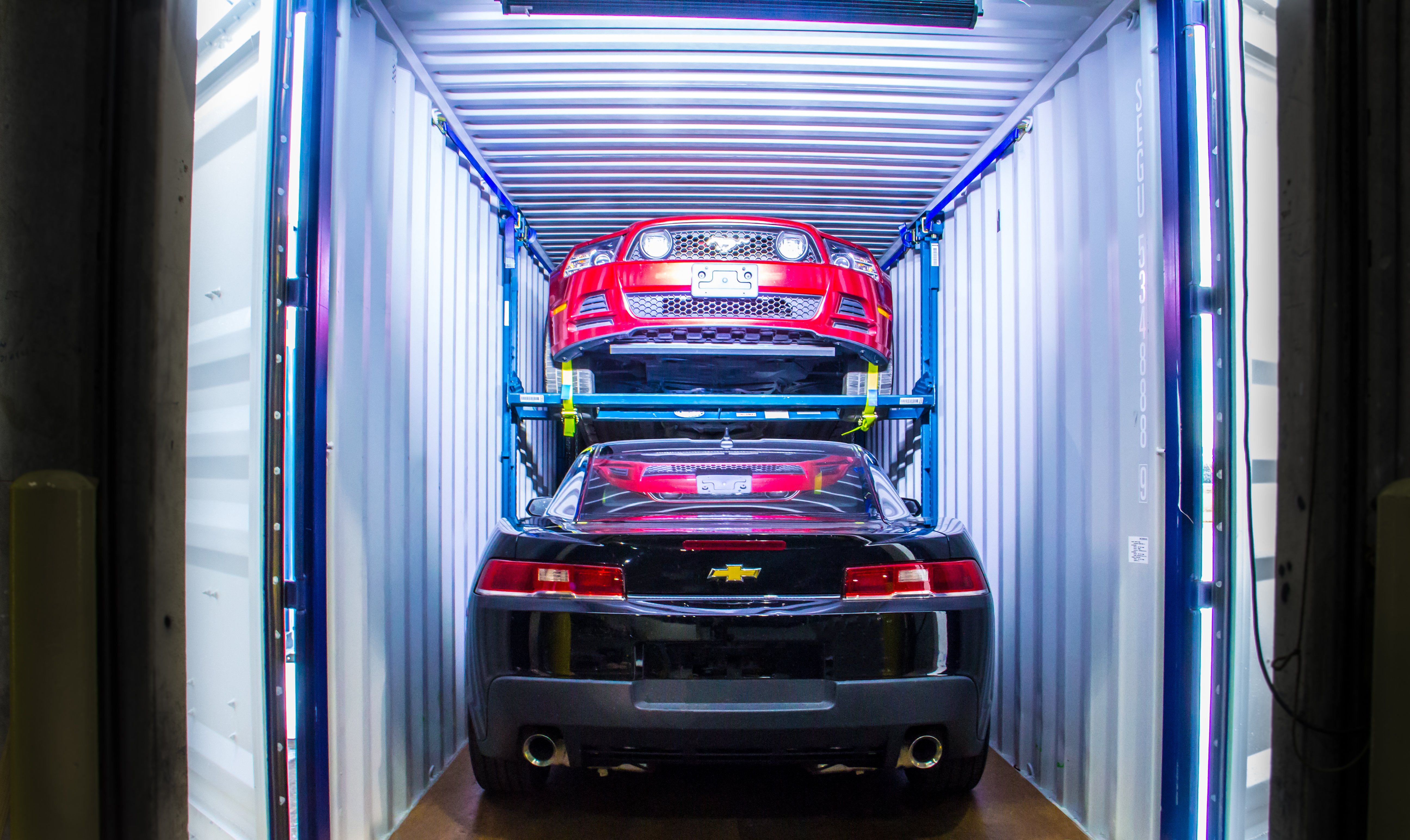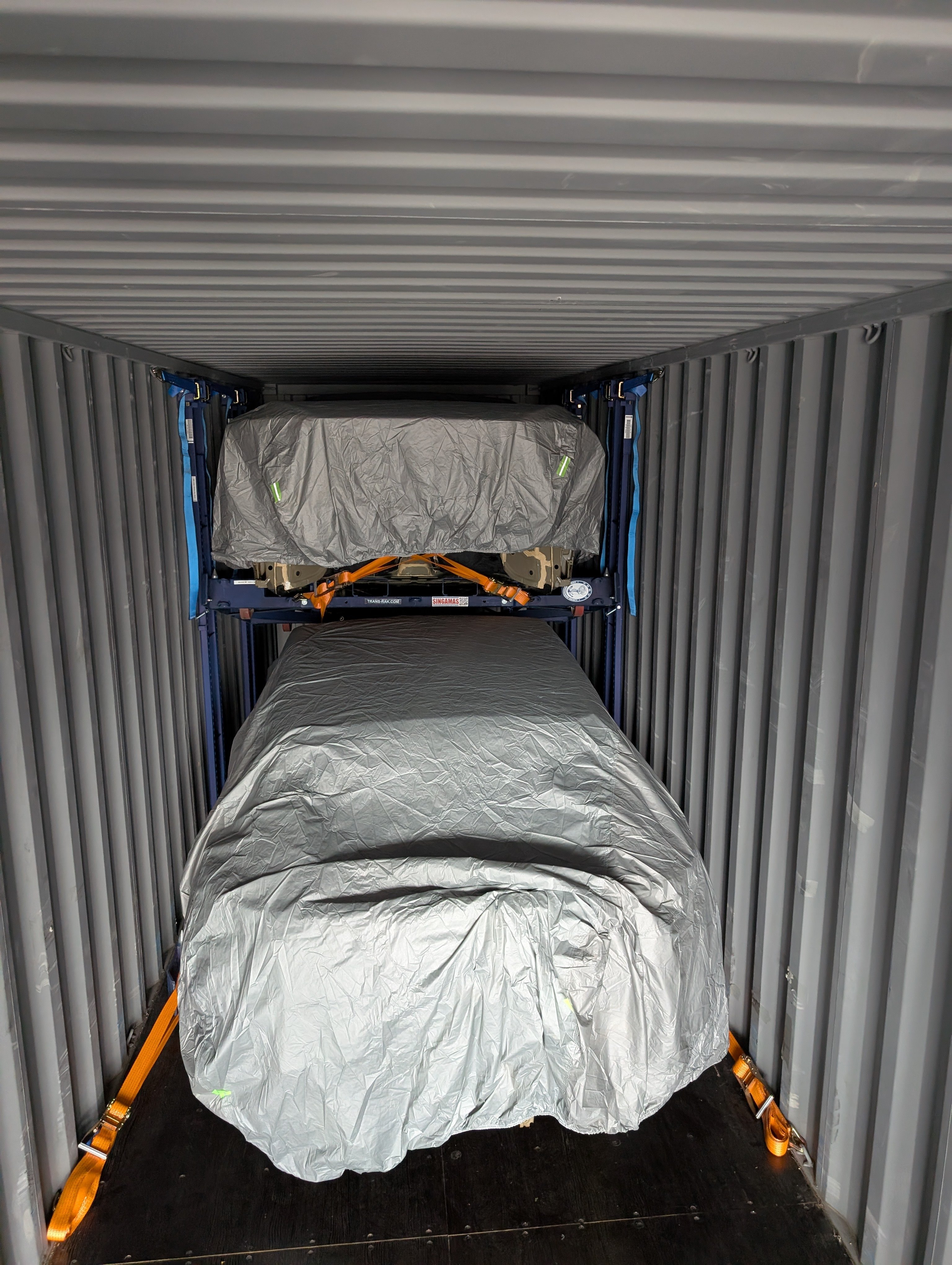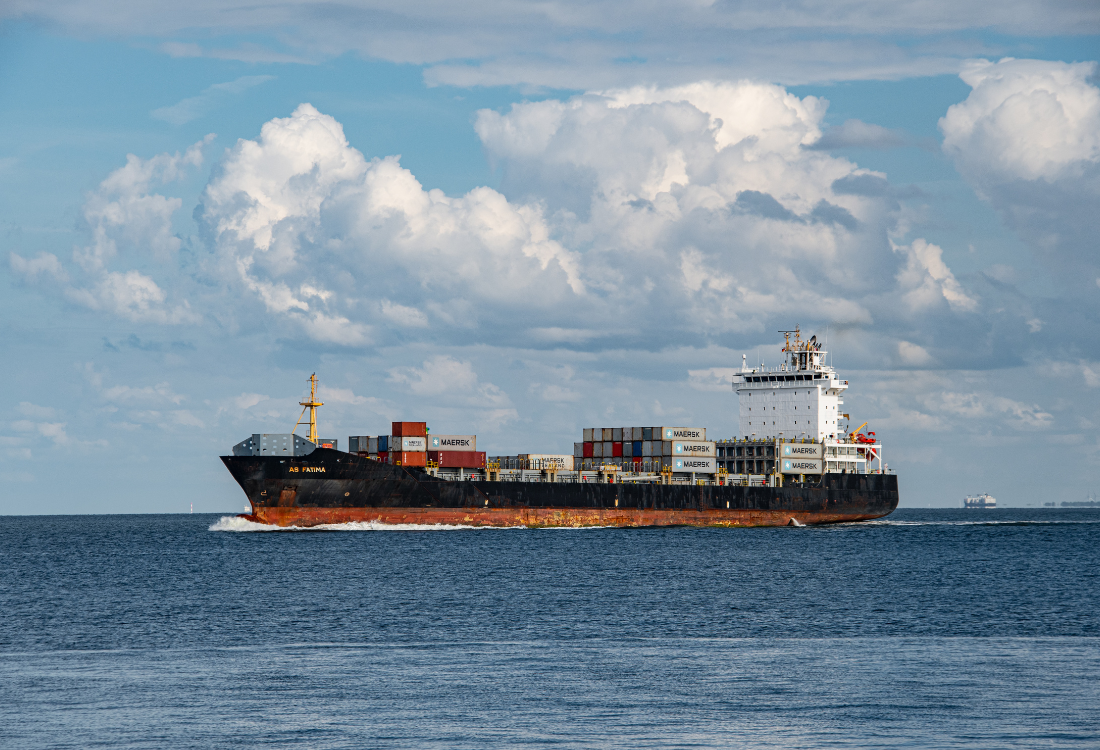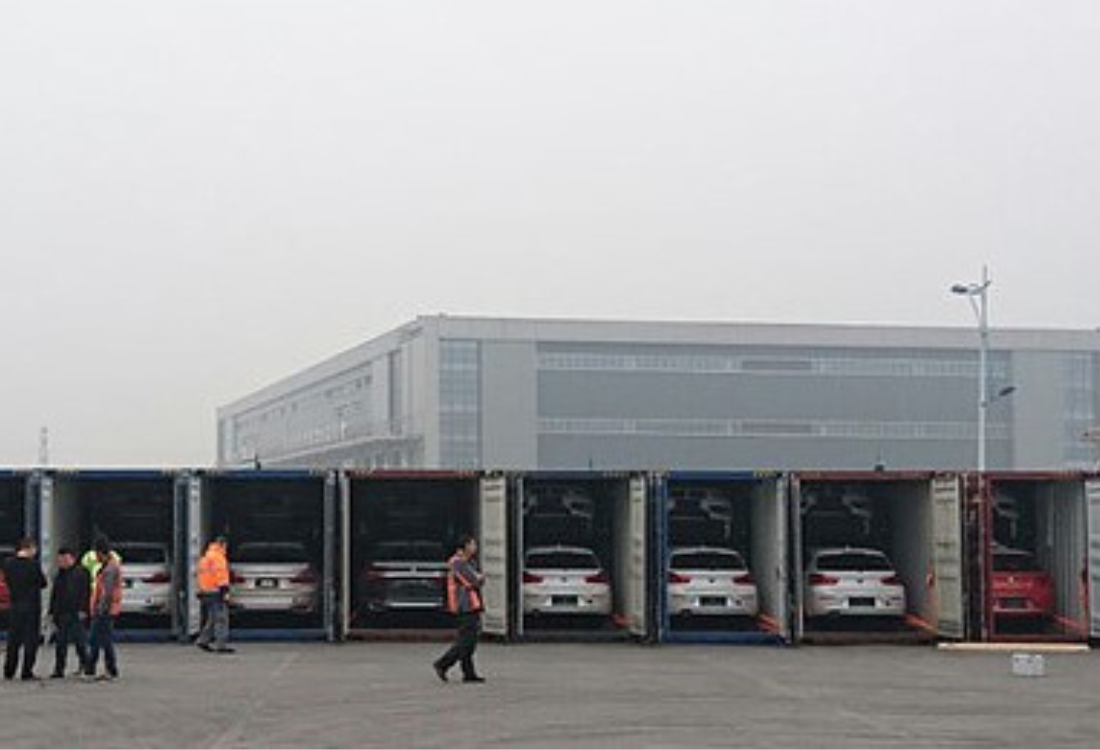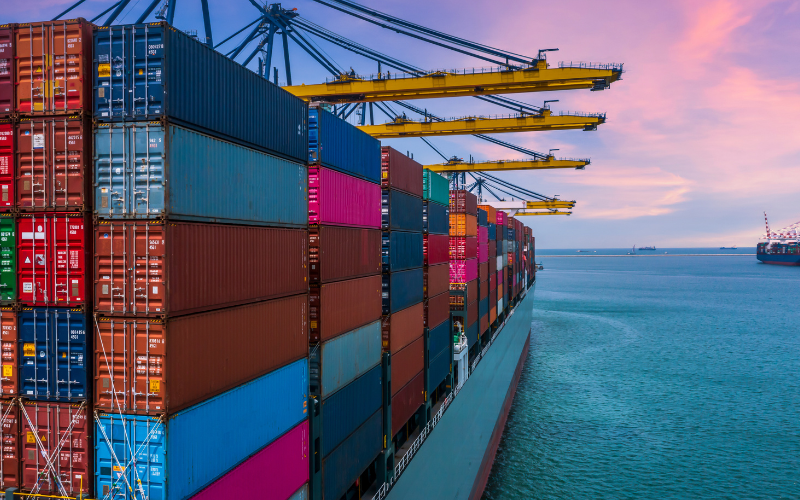
Automotive logistics is the process of managing and moving parts, components, and complete vehicles through a supply chain, often worldwide. The process involves planning, organising, and controlling the flow of goods from raw materials to production to distribution, and can be complicated and costly due to the challenges associated with handling heavy objects in high-volume environments.
In this article, we look at how reusable car racking systems can help businesses improve their automotive logistics operations by improving risk management and reducing the costs associated with finished vehicle logistics.
Transporting Cars By Shipping Container
Containerised transport is the practice of safely securing goods within a shipping container—typically by crating or palletising them—for easier loading, unloading, and tracking throughout an entire supply chain. Container shipping is widely used for individual components and moving parts used within automotive supply chains, lowering end-to-end supply chain costs by reducing the manual labour involved in packing, lifting, and unloading heavy items like car engines or transmission parts.
Container shipping is also an increasingly viable option for finished vehicle logistics due to the availability of cost-effective reusable racking systems.
What Is Finished Vehicle Logistics?
Finished vehicle logistics (FVL) covers the final stages of moving a vehicle from its manufacturing plant to its destination location, and is often the most risk intense and complex aspect of automotive logistics. In FVL, vehicle manufacturers and logistics suppliers cooperate to ensure the safe transport of vehicles. The process involves multiple facets, such as storage, inventory control, packing optimisation, government compliance and transportation management.
It also includes more specific processes such as built sequencing and location delivery management. The successful completion of the entire process guarantees that dealerships receive their cars in perfect condition swiftly and cost-effectively.
The standard shipping method for FVL is roll on roll off (RoRo) shipping. However, containerisation offers a range of benefits for automotive logistics businesses, including minimising the risk of stock damage for finished vehicles, since the cars are secured within containers during transport – avoiding the need to expose valuable consumer vehicles to weather damage, theft, and accidental damage on long voyages by RoRo ferry.
Additionally, containerised transport makes it easier and more straightforward for businesses to track components and finished vehicles as they move through a supply chain.
Reusable Car Racking Systems
Reusable racking systems are designed to securely store and protect containerised finished vehicles while in transit from one location to another on container ships, trains, and even on the back of articulated lorries. The main drawback of container shipping for finished vehicle logistics is cost. It’s simply not cost effective to hire or purchase shipping containers for a large consignment of finished vehicles, if each container can only carry one or two vehicles.
Racking systems increase the cargo capacity and the cost effectiveness of each shipping container while providing additional security against theft, and helping ensure that goods arrive at their destination without damage or delays due to mishandling during transit.
Next Steps
Adopting reusable racking systems for your containerised FVL strategy can significantly lower your costs while also reducing operational risk. To find out more about our products or about containerised car transport in general, please call 01926 408282 today, or click here to download a copy of our free Containerised Car Transport Guide.
Image Source: Canva



